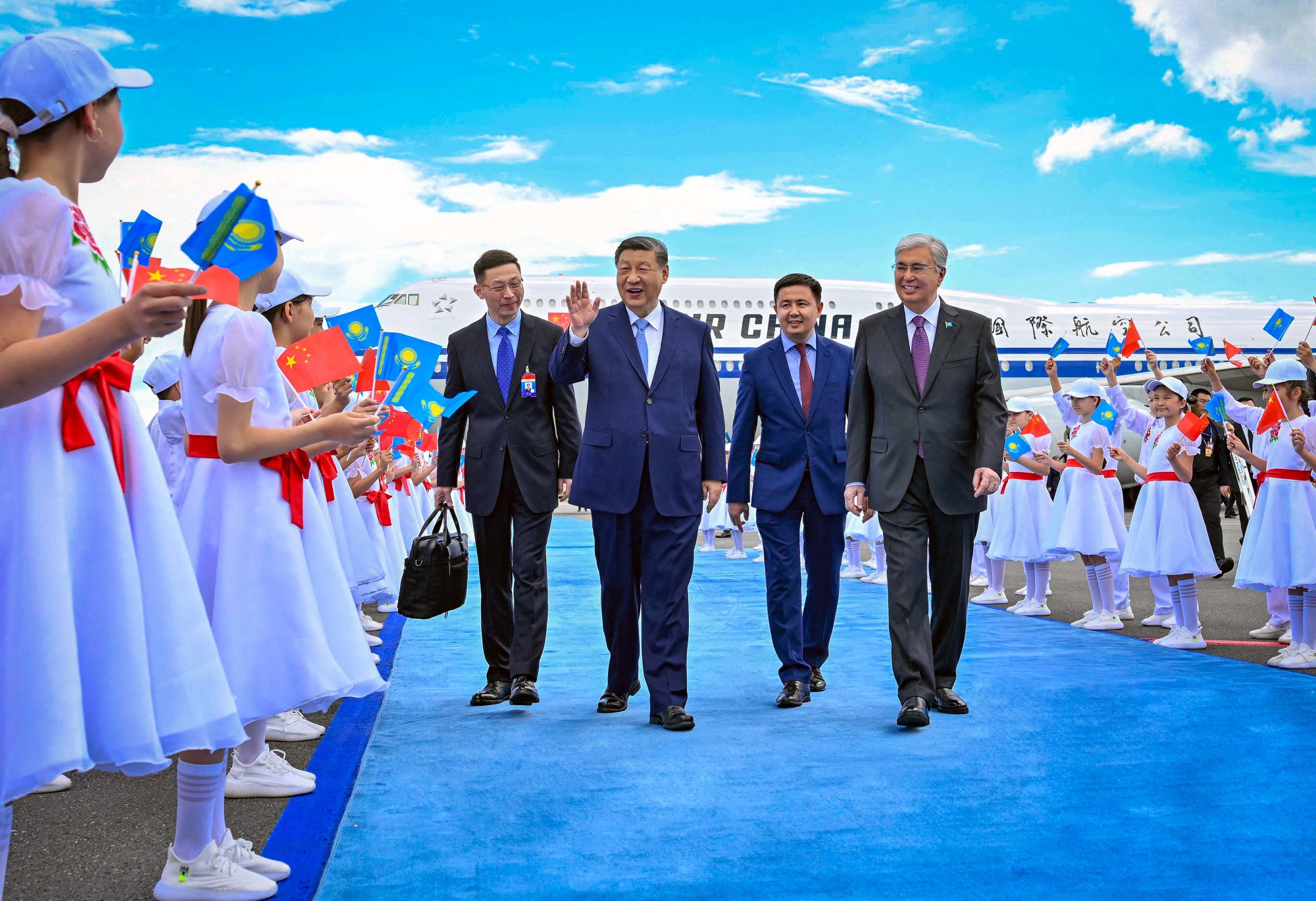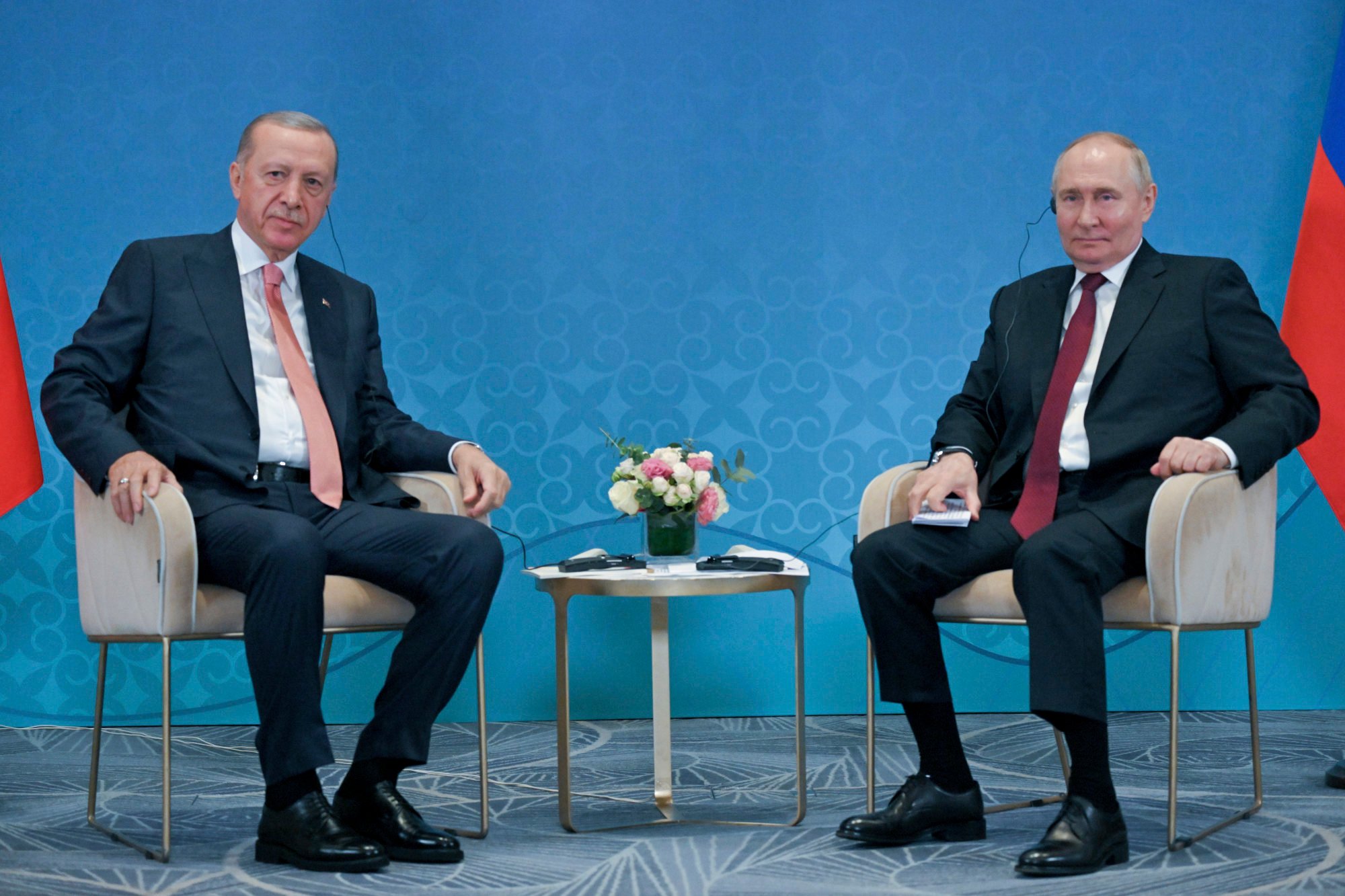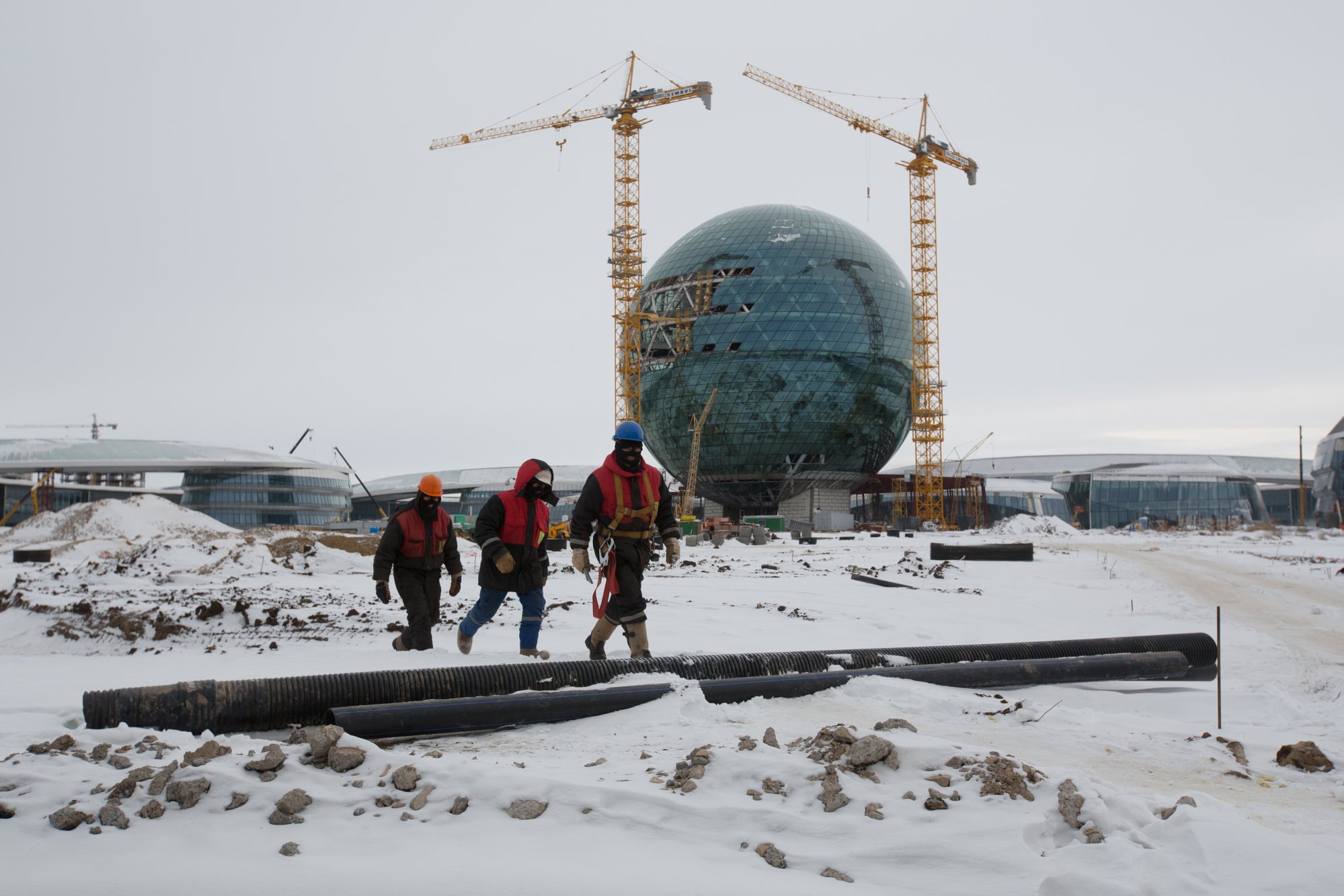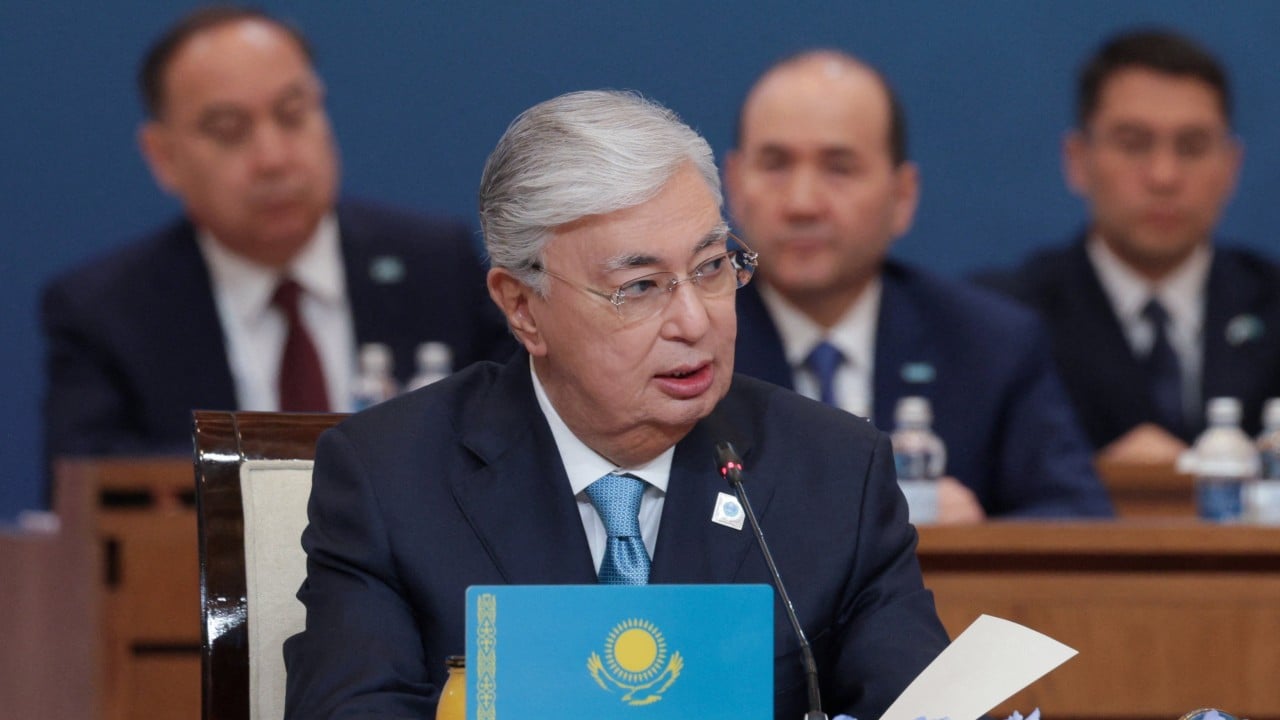Isolated by the West over its actions in Ukraine, Russia seeks to retain Central Asia in its geopolitical orbit. But growing Chinese influence in the strategically important region threatens to end the era of Russian dominance in significant parts of Central Asia.
Kazakhstan, the largest country in Central Asia, has close ties with both Moscow and Beijing. Despite being Russia’s ally in the Collective Security Treaty Organisation, and a member of the Russia-dominated Eurasian Economic Union, Astana has increased economic cooperation with China. Last year, China overtook Russia to become Kazakhstan’s biggest trading partner, with two-way trade hitting US$41 billion.
It is, therefore, no surprise that Chinese President Xi Jinping was given a warmer welcome this year at the Shanghai Cooperation Organisation (SCO) summit in Astana than any other leader of the multilateral group, founded in 2001. Unlike Russian President Vladimir Putin and the leaders of other SCO members – Belarus, India, Iran, Kazakhstan, Kyrgyzstan, Pakistan, Tajikistan and Uzbekistan – Xi was welcomed at the airport in Astana by Kazakh President Kassym-Jomart Tokayev. All the other leaders were met by Prime Minister Oljas Bektenov.
Also, before Xi’s visit to the Central Asian nation, Chinese flags and announcements of his visit appeared on the streets of Astana. These symbolic gestures indicate that Kazakhstan sees China as a de facto leader of the group, and that it seeks to strengthen economic relations with Beijing.
Officially, Xi came to Kazakhstan for a state visit, while other SCO leaders only came to participate in the summit. But as Kazakhstan’s Deputy Foreign Minister Roman Vassilienko told me in an interview, out of 10,000 people who came to Astana for the forum, more than half were Chinese, which suggests that the event in the Kazakh capital had huge importance for Beijing.

For Putin, on the other hand, the SCO summit was an opportunity to show his audience in Russia that Moscow might be isolated from the West, but not from the rest of the world. He met Xi for the second time in two months, as well as his “dear friend” Turkish President Recep Tayyip Erdogan, who came to the summit as a dialogue partner of the SCO.
The fact that Putin and Erdogan met in Astana shows that the Kremlin still sees Nato member Turkey as a strategic frenemy. Meanwhile, Erdogan did not want to miss the opportunity to deepen bilateral cooperation with Kazakhstan, Ankara’s partner in the Organisation of Turkic States.
Kazakhstan, for its part, continues its “multi-vector foreign policy”, balancing between its two giant neighbours – Russia to the north, and China to the south. That is why Kazakhstan seeks to develop closer ties with the West, hoping that it would help it create a counterbalance to its allied ties with Moscow and close economic cooperation with Beijing.
Quite aware of Kazakhstan’s status as a middle power, UN Secretary-General Antonio Guterres, who also took part in the summit, said that Kazakhstan serves as a “shining example of a consistent struggle for peace”.

Since the SCO leaders adopted the Kazakh-proposed initiative, On World Unity for a Just Peace and Harmony, it is entirely possible that the future of various conflicts such as the Ukraine war were on their agenda behind closed doors.
Over the years, the major focus of the SCO has been on tackling the “three evils” of terrorism, extremism and separatism, but in the coming years it will almost certainly have to pay more attention to economic cooperation. As Tokayev reportedly stated, over the past 20 years not a single major economic project was carried out under the auspices of the SCO.
“We try to advance economic cooperation, but it’s not an easy task. Countries still work more on a bilateral rather than on a multilateral basis,” Vassilienko told me.

Indeed, to strengthen its role in the international arena the group will have to work more on economic issues. The SCO represents 40 per cent of the world’s population. Together, member countries account for around 20 per cent of global gross domestic product. But the problem in such a diverse organisation is that its members can hardly reach consensus over crucial matters.
To this day, despite India’s push for the use of English as one of the main working languages of the SCO, all SCO documents are only prepared in Mandarin and Russian. More importantly, SCO members often have diametrically opposed views on important geopolitical developments and completely different geopolitical interests.
Nowhere is that more obvious than in Kazakhstan, and Central Asia in general, where China can eventually replace Russia as the major foreign actor in the energy-rich region.
Nikola Mikovic is a freelance journalist, researcher and analyst based in Serbia


